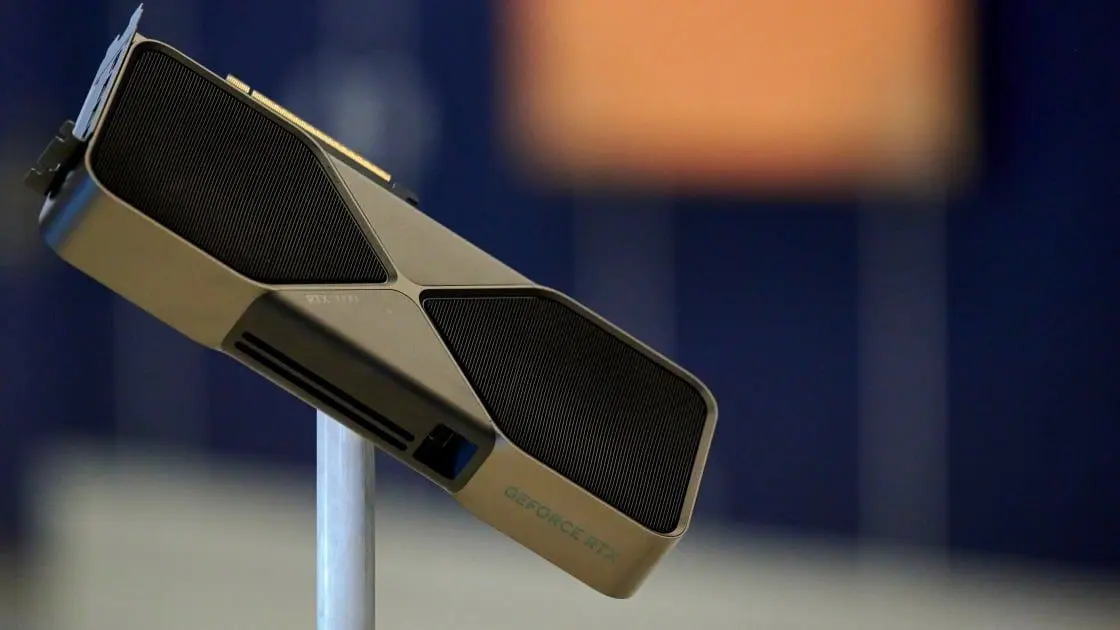Germany Inaugurates IBM's First European Quantum Data Centre, Aims for Global Leadership
2 Sources
2 Sources
[1]
Germany aims to be world leader in quantum technologies, says Scholz
BERLIN, Oct 1 (Reuters) - German Chancellor Olaf Scholz vowed to support the development of quantum technologies, saying at the opening of an IBM data centre on Tuesday that investment in the sector was crucial for the future of Europe's biggest economy. "Our goal is clear: to be global leader in quantum technologies," said Scholz, adding Germany had invested 2 billion euros ($2.22 billion) on quantum technology since 2020. Advertisement · Scroll to continue "This is the basis of our economic success and prosperity," he said at the opening of IBM's Quantum European Data Center in Ehningen, a roughly 290 million euro investment. The centre will allow users in Europe and elsewhere to access services for cloud-based quantum computing research. Quantum computers could operate millions of times faster than advanced supercomputers. So far, the United States and China have led the technology. Advertisement · Scroll to continue Other projects in Germany include the joint development of quantum processors by Infineon and eleQtron GmbH. Scholz said Germany was focused on semiconductors, AI, pharmaceuticals and bio- and climate technologies. "These are the areas we need to lead," said Scholz, adding it was vital Europe pushes ahead with semiconductor production despite a delay in a planned investment by U.S. chipmaker Intel in the city of Magdeburg. ($1 = 0.9016 euros) Reporting by Andreas Rinke Writing by Madeline Chambers Editing by Rachel More Our Standards: The Thomson Reuters Trust Principles., opens new tab
[2]
Germany inaugurates IBM's first European quantum data centre
Ehingen (Germany) (AFP) - Chancellor Olaf Scholz on Tuesday inaugurated US firm IBM's first quantum data centre in Europe, saying Germany aims to be at the forefront of the revolutionary technology. The centre -- IBM's first outside the United States, and located in Ehningen, near Stuttgart -- will allow dozens of European companies and research institutes to gain access to its quantum systems. While still in its early stages, scientists believe that super-fast quantum computing will eventually be able to power innovation in a range of fields, from smarter encryption software to artificial intelligence. Scholz hailed the data centre as "good news for Germany", adding that Europe's biggest economy needs such "key technologies". "It is precisely these future fields where we have to be at the forefront, where we must not be dependent on others," he said. Quantum research is seen as a critical field and both the United States and China have been investing heavily in the area, while Washington has also placed restrictions on the export of the sensitive technology. Olivier Ezratty, an independent expert in quantum technologies, told AFP that private and public investment in the field have totalled around $20 billion worldwide over the past five years. The centre in Germany consists of two quantum computers linked to quantum processors. One of the computers at the site was inaugurated in 2021 by Scholz's predecessor, Angela Merkel, and was the first in Germany. Mind-boggling speed Quantum computers can process complex information at a mind-boggling speed and should eventually vastly outperform even the most powerful of today's conventional computers. Regular computers function in binary fashion: they carry out tasks using tiny fragments of data known as bits that are only ever either expressed as 1 or 0. But fragments of data on a quantum computer, known as qubits, can be both 1 and 0 at the same time -- allowing them to crunch an enormous number of potential outcomes simultaneously. The quantum computers at the German site are vast metal stacks and other components connected via a mass of wiring, and bear no resemblance to regular computers. IBM already has 250 customers worldwide who are testing its quantum computers to develop applications in various areas. The US firm has been seeking to develop the technology for 20 years in competition with other tech companies such as Google, Amazon and Microsoft, as well as research labs and start-ups. Companies that will have access to IBM's quantum systems via the new data centre include German auto titan Volkswagen and technology group Bosch. IBM says it is confident that it will be able to provide clients with a quantum computer able to run cutting-edge applications by 2029. But the technology still has some way to go. A main challenge is to reduce the rate of errors that systems produce, which experts say is still too high. By the end of the year the German data centre should host IBM's latest quantum system, called Heron, which the firm says will run with reduced error rates and a 25-fold increase in speed from its predecessor. "In certain aspects... the Heron system is the most advanced today," said independent expert Ezratty. In addition IBM has built up a large ecosystem of companies and institutions which "are already testing their tools on an experimental scale," he said. But he cautioned that the error rate was still too high "to perform useful calculations on a large scale".
Share
Share
Copy Link
Germany takes a significant step in quantum computing with the inauguration of IBM's first European quantum data centre. Chancellor Olaf Scholz expresses the country's ambition to become a world leader in quantum technologies.

Germany's Quantum Leap
In a landmark move for European quantum computing, Germany has inaugurated IBM's first quantum data centre on the continent. The facility, located in Ehningen near Stuttgart, marks a significant step in Germany's ambition to position itself at the forefront of quantum technology development
1
.Chancellor's Vision for Quantum Leadership
German Chancellor Olaf Scholz, present at the inauguration, emphasized the country's commitment to becoming a world leader in quantum technologies. "We want Germany to be right at the top of the world in quantum technologies," Scholz declared, underlining the strategic importance of this field for the nation's technological future
1
.IBM's European Quantum Hub
The new facility houses IBM's most advanced quantum computer in Europe, featuring 127 qubits. This powerful machine is expected to play a crucial role in advancing research and development in various sectors, including the automotive and chemical industries
2
.Government Investment and Strategy
To support this ambitious goal, the German government has allocated substantial resources. A budget of 2 billion euros has been set aside until 2025 to fund quantum technology research and development. This investment is part of a broader strategy to ensure Germany's competitiveness in the rapidly evolving field of quantum computing
1
.Related Stories
Implications for European Tech Landscape
The inauguration of this quantum data centre is not just a milestone for Germany but for Europe as a whole. It signifies a shift in the global quantum computing landscape, potentially reducing Europe's dependence on quantum technologies developed outside the continent. The facility is expected to attract top talent and foster collaboration between academia and industry
2
.Future Prospects and Challenges
While this development marks a significant step forward, experts caution that the road to practical, large-scale quantum computing applications is still long. The technology faces numerous challenges, including maintaining quantum coherence and scaling up qubit systems. However, the establishment of this centre provides a solid foundation for addressing these challenges and advancing the field
1
2
.References
Summarized by
Navi
Related Stories
Germany Unveils Jupiter: Europe's Fastest AI Supercomputer in Bid to Catch Up with US and China
06 Sept 2025•Technology

Quantum Computing: The Next Frontier After AI's Breakthrough
07 Aug 2024

Germany Unveils Ambitious AI Strategy to Boost Economic Output and Technological Competitiveness
15 Jul 2025•Technology

Recent Highlights
1
SpaceX acquires xAI as Elon Musk bets big on 1 million satellite constellation for orbital AI
Technology

2
French Police Raid X Office as Grok Investigation Expands to Include Holocaust Denial Claims
Policy and Regulation

3
UNICEF Demands Global Crackdown on AI-Generated Child Abuse as 1.2 Million Kids Victimized
Policy and Regulation





